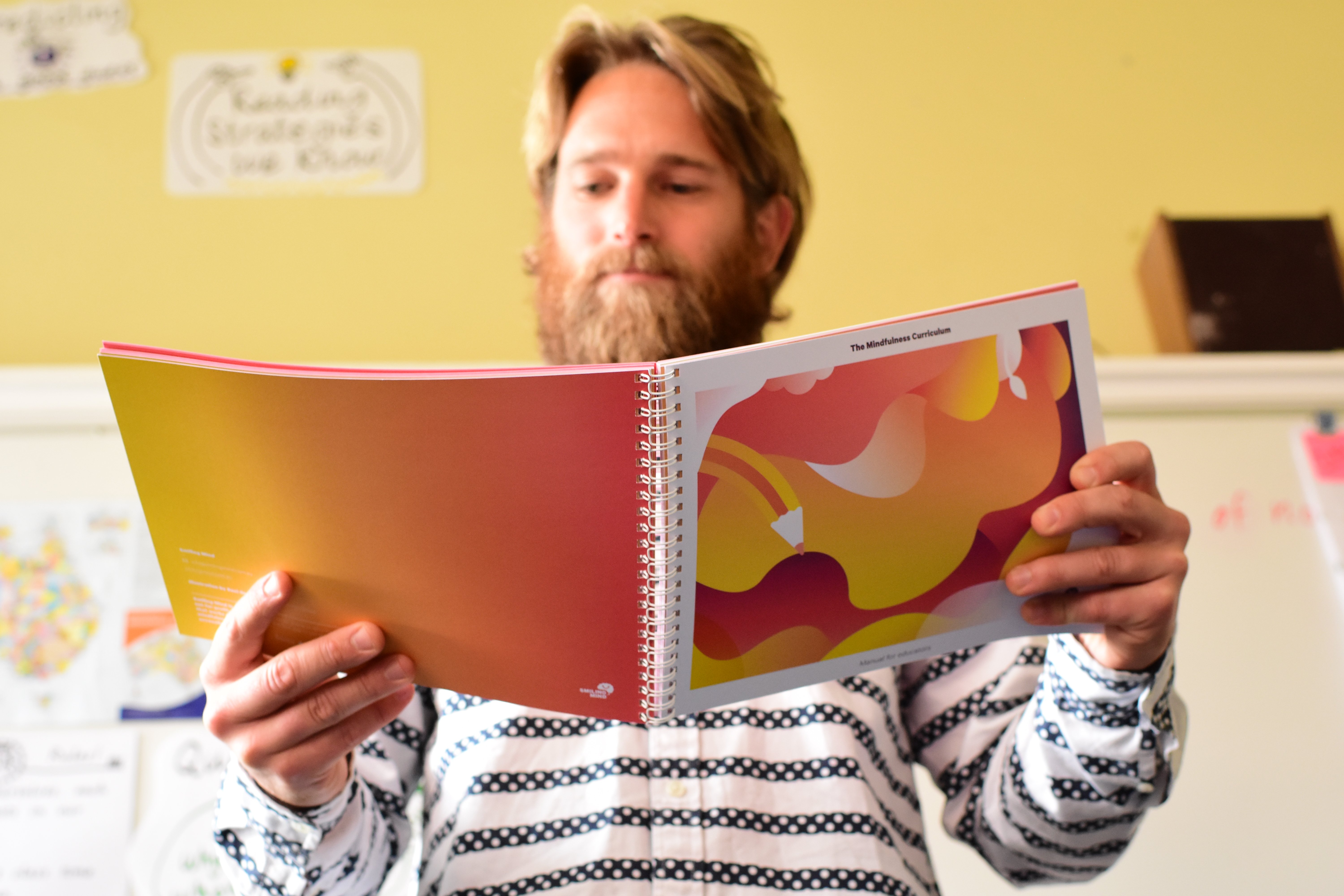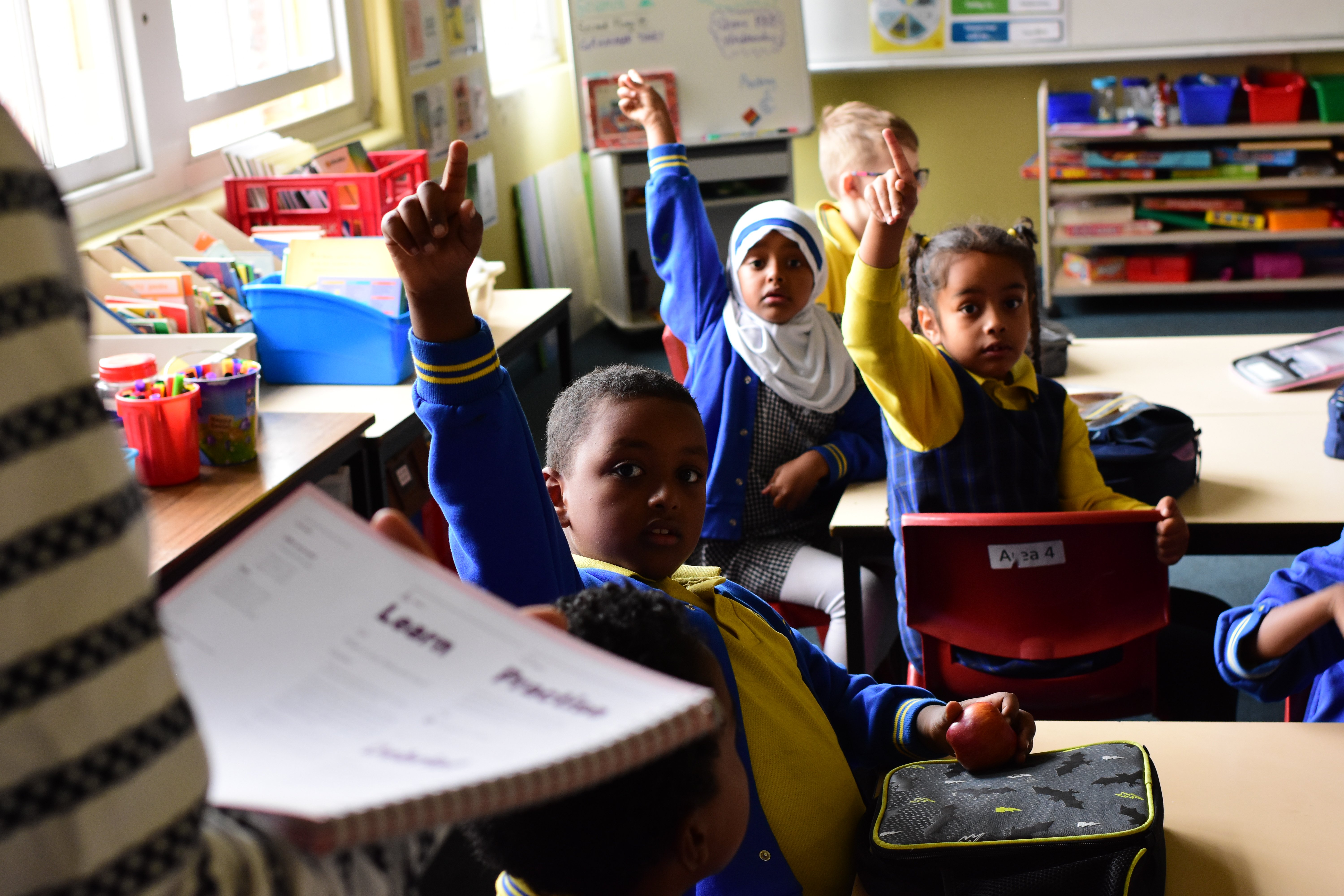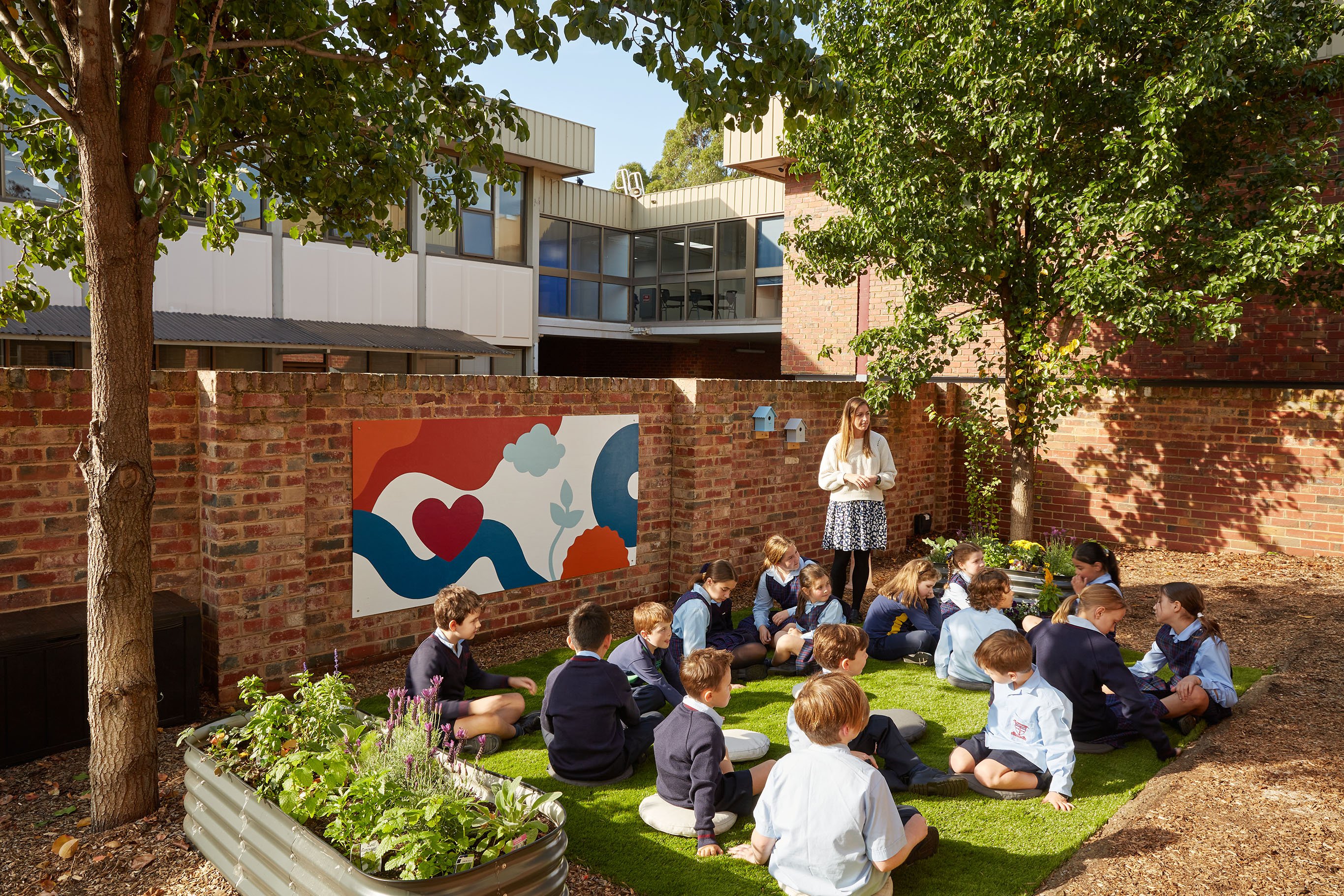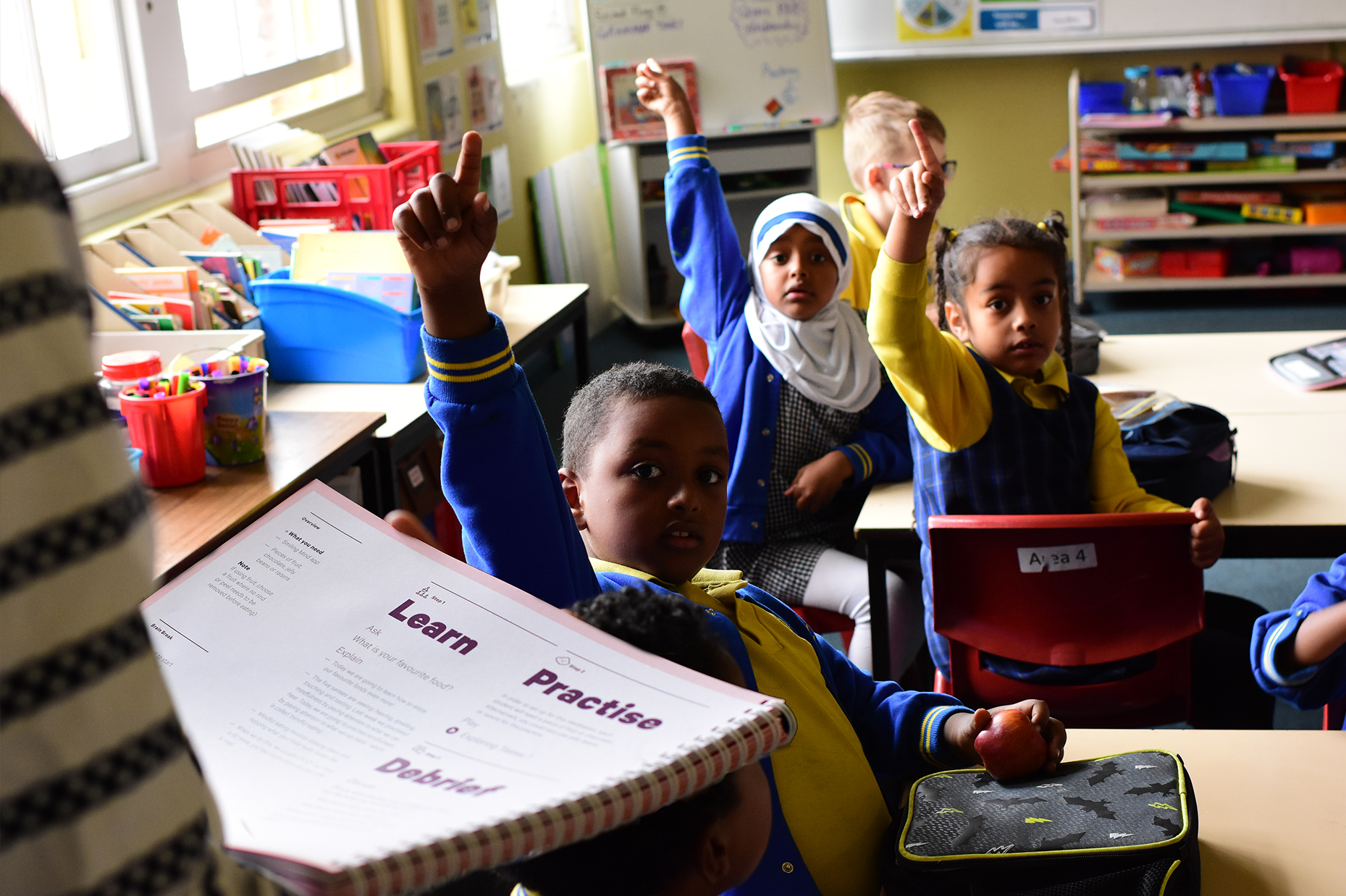It can be tough as a teacher in the primary years to know how to teach everything in an effective and purposeful way - not to mention finding the time to fit it all in!
As part of the Australian Curriculum, teachers must now address students’ Social and Personal Capability, which includes skills relating to self-awareness, self-management, social awareness and social management.
Smiling Mind understands that primary school educators are looking for support to help them meet the many demands of the curriculum. And that’s one of the reasons we created a comprehensive Mindfulness Curriculum that is mapped to the Australian Curriculum.
Teachers can follow our Mindfulness Curriculum with the knowledge that they’re supporting their students’ wellbeing and personal and social development in a meaningful and integrated way.
What is the Smiling Mind Mindfulness Curriculum?
The Mindfulness Curriculum was co-designed by psychologists and educators to give schools a framework to deliver a comprehensive social and emotional learning program across the primary years. It builds on Smiling Mind’s existing programs and was developed using evidence-based guidelines for implementing mindfulness in schools.
The curriculum has been developed for each primary school year level from 1 to 6. It follows a consistent structure of the same 20 topics each year to support developmentally appropriate growth as children progress through primary school.

Is the mindfulness curriculum easy to implement?
In a word, yes! The Mindfulness Curriculum has been designed for busy teachers and provides clear guidance and resources that can be followed comprehensively or used flexibly to support other wellbeing programs.
The Mindfulness Curriculum consists of four key resources:
- Educator Manuals- a reference guide for each year level from 1-6 that clearly explains The Mindfulness Curriculum scope and sequence, learning intentions, lesson plans, resources and activities.
- Student Journals- a complementary resource for students to record personal reflections and complete activities associated with the lessons.
- Free Smiling Mind App- our easily accessible app that allows educators to access meditations and lesson plans for every topic.
- Parent Resource Guide- an information guide for parents to help support their child’s mindfulness learning at home.
What does a typical lesson look like?
Lessons are designed to take approximately 30-45 minutes. Each lesson, which is clearly outlined in the Educator Manual, takes teachers through the same 5 steps.
Step 1. Learn
The teacher is given questions to help guide discussion about the big ideas around the topic. Suggested prompts are provided to help the teacher explain the topic further and fill in any gaps not covered in the discussion.
Step 2. Practise
The lesson includes a 5-7 minute guided meditation, which is a practical application of the topic introduced in step 1. All guided mediations can be found through the Smiling Mind App.
Step 3. Debrief
Discussion prompts are provided for the teacher to guide student conversation and questions after the meditation. This is an important time for children to reflect on their learning and discuss what may have arisen for them during the meditation experience.
Step 4. Integrate
Each topic includes a 5-15 minute take home activity for students to complete in their journal during the week.
Step 5. Solidify
This step is optional and provides an extra classroom activity to help students further build on their learning around the topic.

To help integrate the learnings from each lesson, it is suggested that the guided meditation is practised 4 times each week.
What if we already use a Wellbeing Program in my school?
The Smiling Mind Mindfulness Curriculum can be used as a standalone program, as it is comprehensively mapped to the Australian Curriculum and has been specifically developed to support all areas of general wellbeing.
However, it was also designed to be easily used as a resource to complement an existing wellbeing program already in place. The clear framework makes it simple for educators to pick and integrate topics that are relevant to their classroom and whole school context.
How do I get started using the Mindfulness Curriculum?
The Smiling Mind Mindfulness Curriculum provides teachers with clear guidelines and resources that are easy to start implementing in the classroom straight away.
If you’re interested in helping young minds thrive through our Smiling Mind Mindfulness Curriculum, contact us so we can help you get started.










.jpg)




